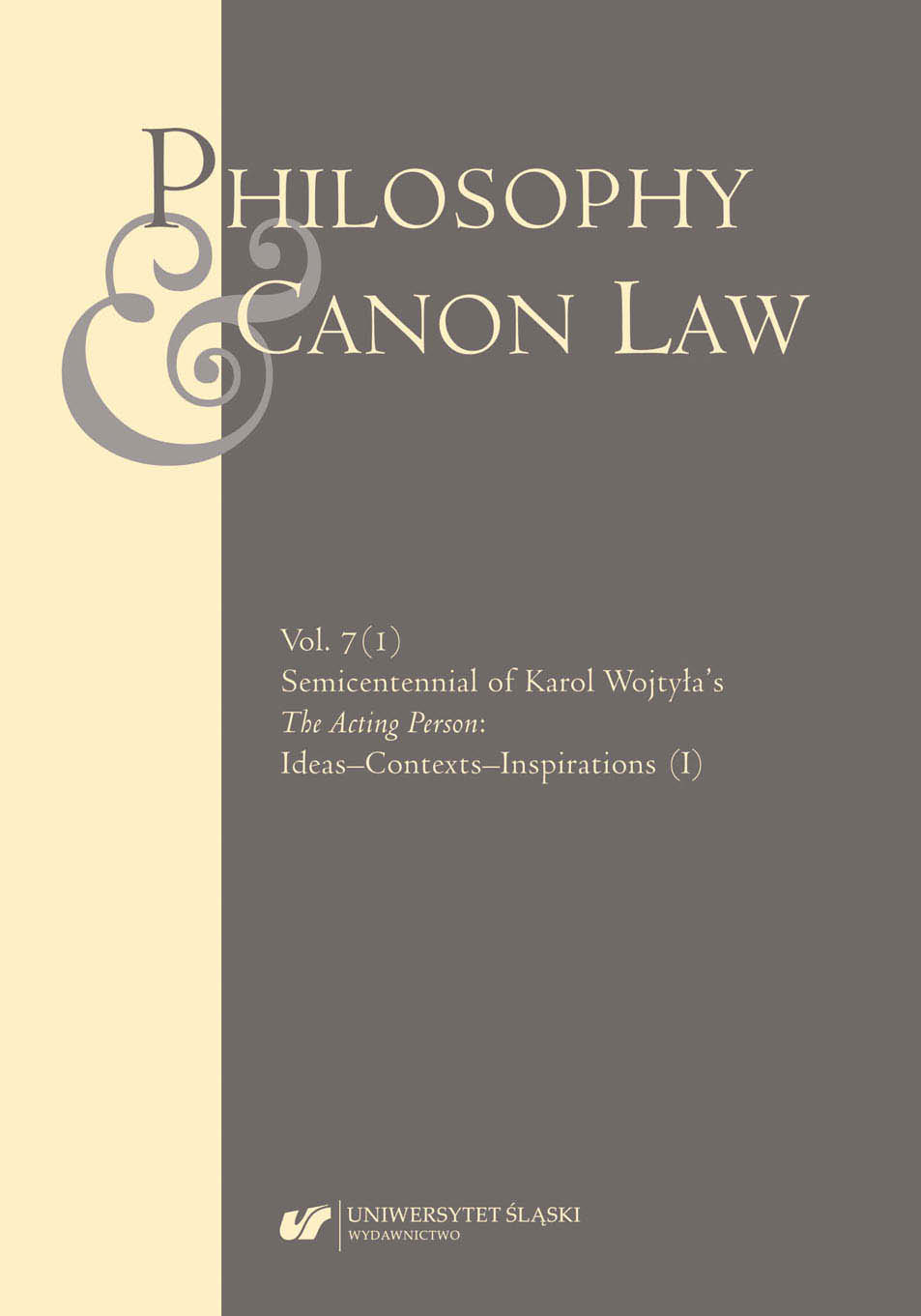On Karol Wojtyła’s Aristotelian Method. Part I. Aristotelian Induction (ἐπαγωγή) and Division (διαίρεσις)
On Karol Wojtyła’s Aristotelian Method. Part I. Aristotelian Induction (ἐπαγωγή) and Division (διαίρεσις)
Author(s): Daniel C. WagnerSubject(s): Canon Law / Church Law
Published by: Wydawnictwo Uniwersytetu Śląskiego
Keywords: Karol Wojtyła; method; induction; reduction; Aristotle; definition; division; person; act;philosophical anthropology;
Summary/Abstract: This is the first of a two-part study treating Karol Wojtyła’s Aristotelian methodology. The study shows that Wojtyła’s inductive and reductive methodology is identical with the Aristotelian method of proceeding from what is better-known to us in experience (ἐμπειρία/empeiria) to what is better-known to nature by way of induction (ἐπαγωγή/epagoge) and analysis (ἀνάλῠσις/analusis) or division (διαίρεσις/diairesis). By a rigorous presentation of this Aristotelian methodology here in Part I, the logical form and force of Wojtyła’s method is properly disclosed and appreciated in Part II. Wojtyła’s method utilizes the logical forms of reductio ad impossibile and reasoning on the hypothesis of the end, or effect-cause reasoning, which is special to the life sciences and the power-object model of definition. By this methodology, Wojtyła obtains definitive knowledge of the human person that is necessary and undeniable: he discloses the εἶδος (eidos) or species of the person in the Aristotelian, Thomistic, and Phenomenological sense of the term.
Journal: Philosophy and Canon Law
- Issue Year: 1/2021
- Issue No: 7
- Page Range: 1-42
- Page Count: 42
- Language: English

